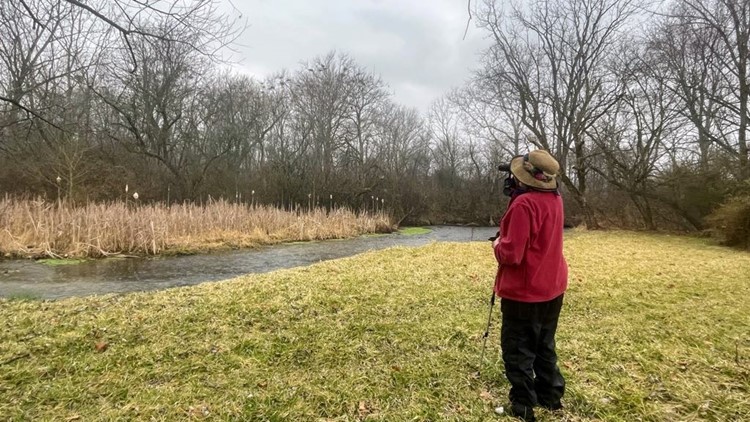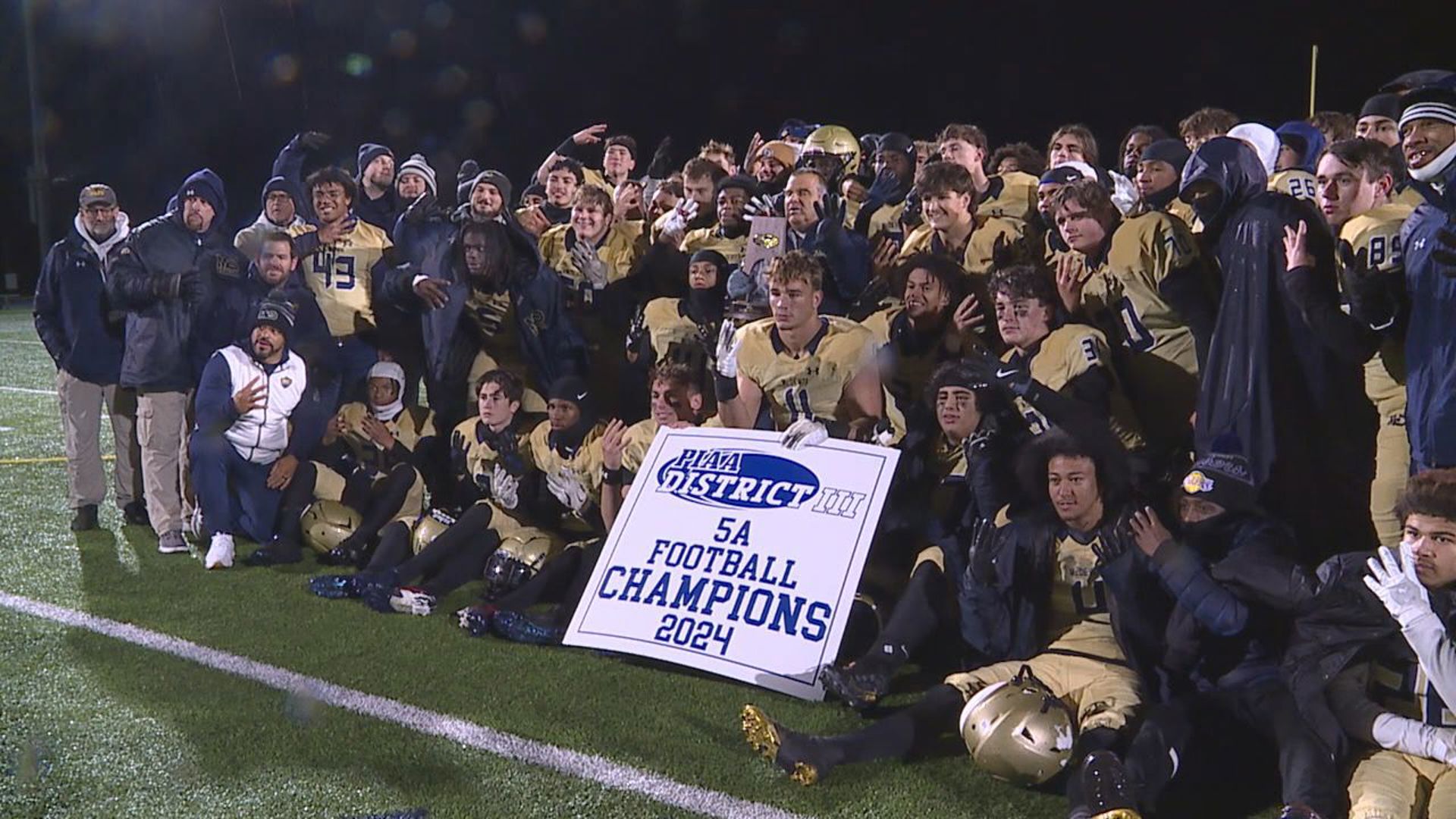SHIPPENSBURG, Pa. — Gay Basehore bought 19 acres of land in Shippensburg in 1979. Instead of farming or developing it, she allowed it to become her own nature preserve.
“It’s low land, which is something that I liked, so I felt it should be protected,” she said.
Over the years the land has been home to many animals, including horses and sheep. In more recent years, birds have flocked to the area. Facebook group Cumberland County Birding identifies great blue herons, rare night herons, red-tailed hawks, peregrine falcons, turkey vultures and more.
About five years ago, a pair of eagles built a nest on a tall tree on Basehore’s property off Newburg Rd. They have managed to fledge about two eaglets a year, Basehore said.
Basehore and Michael Illo, a friend and birdwatcher, have been observing the eagle nest and said the eagles mated about a week ago, and the female has already laid her eggs. Both the male and female will spend the next 35 days taking turns sitting on the eggs until they hatch.
On a rainy Thursday, a sliver of white could be seen above the nest as the eagle bunkered down to keep the eggs warm.
The delicate nesting process is in danger, though, according to Basehore, because of medical helicopters flying too close to the nest. Basehore said she saw several helicopters in one week.
“Helicopters have been coming over and it disturbs birds. The sound of a helicopter is like a punch and it drove her off the nest,” she said.
The eagles didn’t come back for a few days, she said, leaving the eggs cold and unprotected.
Basehore said to protect the eagles, she wants helicopters to avoid the area, or at least fly at a higher altitude over it.
“We can work out something where this is a no-go zone, where they go around us. That’s what I’m hoping,” she said.
Basehore said she called several nearby health systems that fly medical helicopters. They directed her to contact the FAA, which controls air space.
Basehore and Illo hope for an update before the great blue heron eggs hatch and the males migrate back in the spring, since there will be many more birds at that time.
“It’s also, I feel, a danger to the helicopter. If you’re flying low enough to upset the birds, spook them and they start flying around, then there’s more risk of a collision,” Illo said.
The FAA wrote in a statement,
"Shippensburg, Pennsylvania, is outside controlled airspace, which means that pilots of helicopters and other aircraft can fly using Visual Flight Rules without being in contact with air traffic control."
The FAA does have guidance on reducing bird strike risks, which suggests avoiding "overflight of known areas of bird concentration and flying at low altitudes during bird migration."



